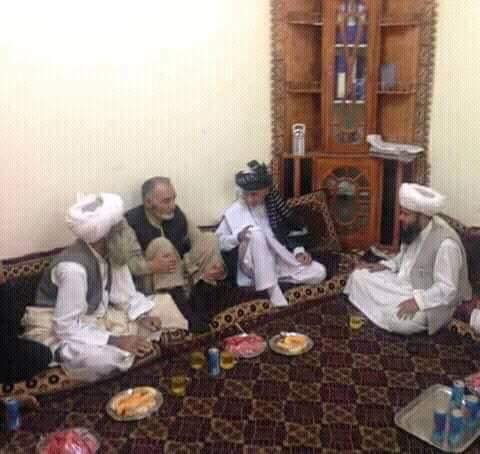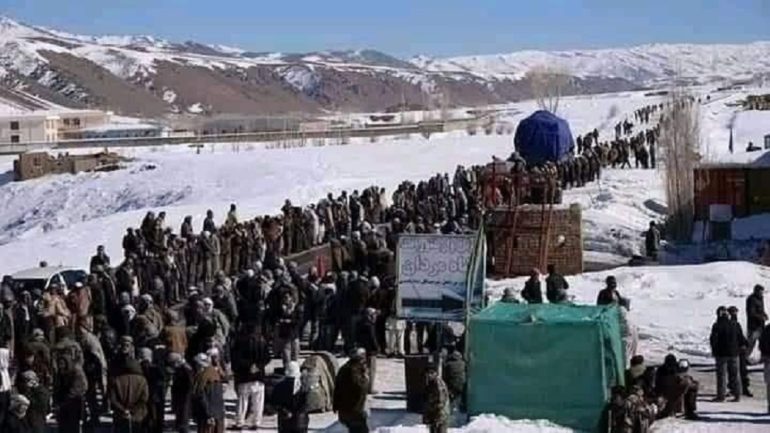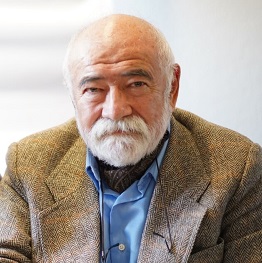On Friday, January 29, 2021, the Afghan security forces fired on a peaceful gathering in Behsud killing more than 10 people, injuring another 20 and holding captive more than 60 others. The region is a district in central Afghanistan. Why did the Afghan security forces open fire and under whose order committed this act, is not yet fully known but it looks like the government is in a state of paranoia and has lost its priorities. In a normal situation no government will try to antagonize its loyal supporters by subjecting them to a hail of bullets.
First, some background to the situation:
A few weeks earlier the government in Kabul made some military maneuvers in central Afghanistan by sending a heavily armored column made up of armored personnel carriers, the security, and special forces. The area also known as Hazarajat or Hazaristan has been the most peaceful and quiet part of the country since the demise of the Taliban in 2001. However, nomads or Kuchis have been going to the central highlands since 2001 and on their way trampling the fields and cultivations of the people. Repeated requests by the people have been treated with silence on the part of the authorities and they have only interfered when the locals have resisted the nomads’ onslaughts. One main reason that is generally given to the lackluster response of Mr. Ghani to the nomad issue is that his own tribe of nomads has been involved in the incursions. There are different tribes and clans of nomads, but one of the main one that goes to the central region is the Ahmadzais.

Ashraf Ghani is well known as Ahmadzai because he belongs to this tribe. When Mr. Ghani became president, he dropped the Ahmadzai surname which was a political decision to dissociate himself from the crimes that his tribe is accused of committing in central Afghanistan. However, dropping his last name does not make him any less associated with the misdeeds of his tribe. His brother is the chief of the nomad’s council who publicly and vociferously defends his nomad’s incursions. In the annual incursions of the nomads in central Afghanistan, the Taliban help and support them. When it comes to subduing the Hazaras, the nomad and Taliban interests coincide. Weakening the Hazaras and eventually driving them out of their lands have been a common practice in these regions. Previously, the central governments showed green lights to the nomads in their incursions, nowadays, the Taliban, and the government help the nomads succeed in their drive. It is the Pashtun hegemony. That is why the government’s response has always been lukewarm and, on many occasions, has been limited to appointing a commission of inquiry to follow the case with no plan of action until next year, and another day another game.
The nomads know that the government has their back and that is why they show up year after year. Thru the ages, much of the fertile and arable lands in central and south-central Afghanistan have been taken by the tribes who were encouraged and supported directly or indirectly by the governments in power.
Chokehold
Although central Afghanistan has largely been peaceful, save the seasonal incursion of the nomads, the roads leading to it have been very dangerous and deadly for the Hazaras. During the last two decades, the Taliban have established a chokehold on the central region in Jalriz district at the outskirts of Hazarajat. They have been taking Hazara passengers out of their vehicles and shooting or beheading them on the spot. The government after repeated appeals established some checkpoints on the way, but in the face of the Taliban attacks have either purposely or negligently not been able to save the checkpoints and as a result, the arms and ammunition of the checkpoints have fallen in the hands of the terrorists and the security personnel were either killed or taken prisoner.
A Smooth Sail
During the recent government maneuver, there have been no skirmishes on the way to Hazaristan and it has been more than two weeks that they are there. Some questions arise regarding the government’s safe and smooth trip to the region and the reason or motive behind it. How come the forces passed thru the chokehold of Jalriz on their way to the central part? Was there an understanding between the government and the Taliban in the region that the forces are not to subdue them but their enemies, the Hazaras? Why does the government send forces to a region that poses no security threat or danger and has been quiet and peaceful? Shouldn’t the government be worried about the security situation elsewhere instead of creating mayhem in a peaceful region whose residents have been loyal government supporters? On Friday, the local people wanted to raise their concerns and to talk to the security forces, and demand an explanation when they were rebuffed. They staged a protest and were met with live bullets fired by the security forces.
The government in Kabul is being isolated nationally and internationally. It looks like it has lost its supporters and friends including those that thru their aid and support try to keep the government afloat. The US and some neighbors try to woo Kabul to agree with the Taliban, however, the so-called inter-Afghan dialogue is not going well. The Taliban have practically abandoned the Doha talks and their senior negotiators are lobbying the regional powers such as Iran and Russia to support their position. They have said all along that they will not form a joint government with Ghani. They consider Ghani a puppet of the US and they have shown disdain in dealing with him. Recently, the Taliban deputy chief of negotiations said in Moscow that Ghani is the main obstacle to peace in Afghanistan.
An Act of Desperation
Whatever Mr. Ghani Ahmadzai’s motives, by all indications, he and his commanders committed a war crime in Behsud. This was no military operation as there was no threat or danger to the security forces. Had there been even one armed man among the protesters, he could have killed or injured at least a few security personnel. Even in the face of this massacre and a war crime, the people still have not reacted in kind to wage a war against the security forces. Among the hostages that the security forces took of the protesters, not one was armed. Speaking of hostages, one added crime is holding of injured civilians some of them old men and boys, and preventing them from getting medical attention. Some of the hostages were beaten and tortured to extract information. All in all, it looks like Mr. Ghani and his advisors, who are equally alien to the reality of Afghanistan and the delicate and sensitive relations among various ethnic groups, are digging their graves. This is perhaps the culmination of the policies that the government has carried out during the past decade in the country against Hazaras and others. The consequences of their actions will be felt in the years to come by the perpetrators themselves as well as the people who were subject to this behavior. For Mr. Ghani himself, a good example that comes to mind is Radovan Karadzic of Bosnia who carried out racial and genocidal policies against Muslims and massacred thousands of innocent civilians in Srebrenica just for being Muslims. Finally, he was brought to the ICC in the Hague to face justice and he got what he deserved.

